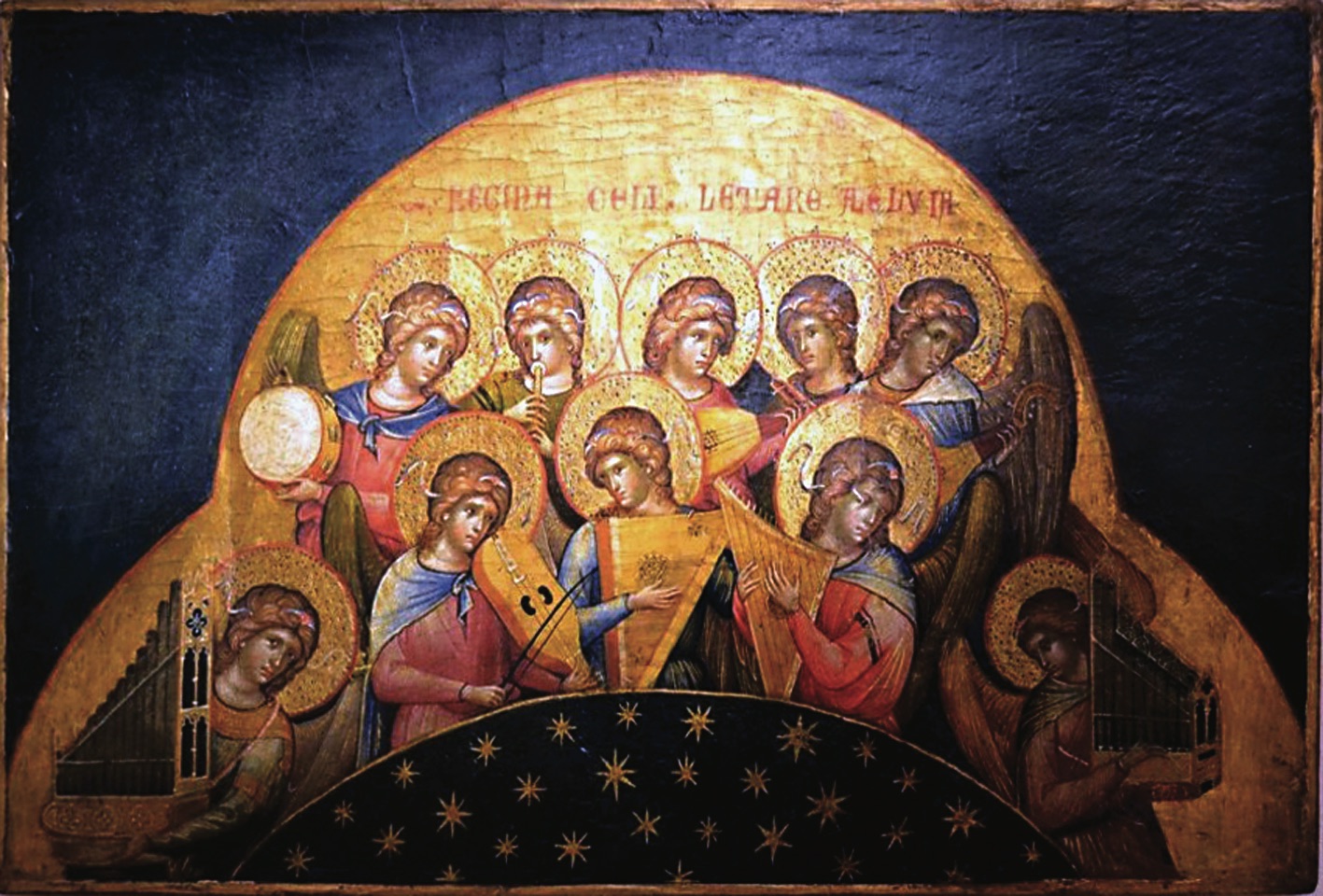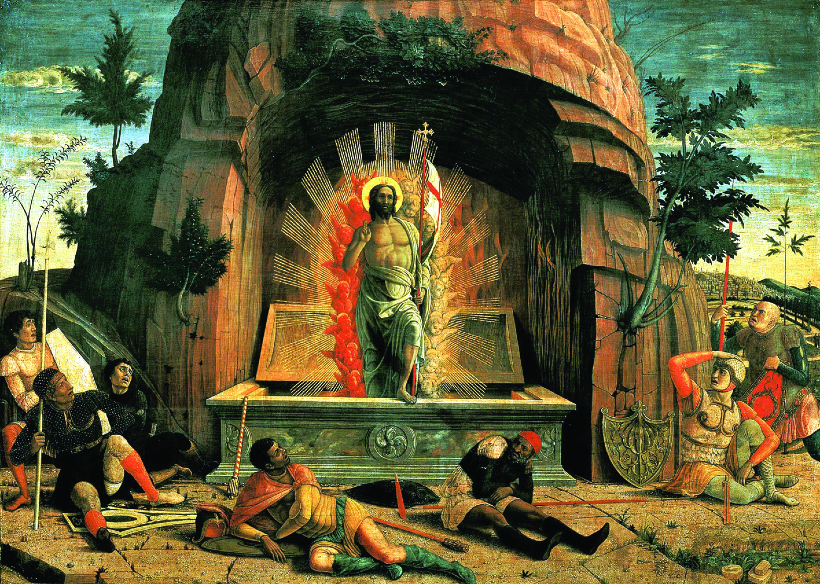“Mercy is God’s distinctive mark,” says Fr. John Saward, the formerly Anglican, now Catholic priest in England: it is His goodness “coming to the aid of our misery, especially the misery of sin.”
But, as Pope Francis explains in this beautiful talk, his first catechesis on mercy, this attribute of God is not incidental to Him, not something He “has,” but something He possesses as part of His very nature. St. Thomas Aquinas says, “When love causes goodness in the beloved, it is love proceeding from mercy.” And so, continues St. Thomas, God’s mercy, “the root of divine love,” is at the root of everything He does.
St. John Paul II even called mercy “love’s second name.”
God cannot, in fact, be other than all-merciful — having an infinitely generous, self-giving love, an “unshakable desire to pour goodness into things, to enrich and beautify His creatures,” as Fr. Saward says.
But it is not a cold mercy either, or a capricious mercy, or a strictly obligatory mercy that God has for us, says the Holy Father. It is akin to the desire of a mother to forgive, protect and love her own child: it is a mercy that is “tender,” “maternal,” and “visceral,” he says.
How can we not respond to such a mercy, such a love, offered to us without hesitation by such a Father?

“The Return of the Prodigal Son,” by Bartolome Esteban Murillo
A Catechesis on Mercy Begins January 1
Today we begin catecheses on mercy according to the biblical perspective, in order to learn mercy by listening to what God Himself teaches us with His Word. We begin from the Old Testament, which prepares and leads us to the full revelation of Jesus Christ who, in an accomplished way, reveals the Father’s mercy.
The Lord is presented in Sacred Scriptures as “merciful God.” And this is His name, through which He reveals to us, so to speak, His face and His heart. He Himself, as narrated in the Book of Exodus, on revealing Himself to Moses describes Himself thus: “The Lord, a God merciful and gracious, slow to anger, and abounding in steadfast love and faithfulness” (34:6). We find this formula also in other texts, with some variation, but always the stress is put on mercy and on the love of God who never tires of forgiving (cf. Jonah 4:2; Joel 2:13; Psalm 86:15; 103:8; Nehemiah 9:17). Let us look together, one by one, at these words of Sacred Scripture that speak to us of God.
The Lord is “merciful”: this word evokes an attitude of tenderness as that of a mother in dealing with her child. In fact, the Hebrew term used by the Bible makes one think of the insides or even the maternal womb. Therefore, the image it suggests is that of a God who is moved and becomes tender for us as a mother when she takes her child in her arms, desirous only of loving, protecting, and helping, ready to give everything, even herself. This is the image that this term suggests. A love, therefore, that can be described as “visceral” in the good sense.
Written then is that the Lord is “gracious,” in the sense that He gives grace, has compassion and, in His greatness, bends over one who is weak and poor, always ready to receive, to understand, to forgive. He is like the father of the parable reported in Luke’s Gospel (cf. Luke 15:11-32): a father who does not shut himself in resentment because of the younger son’s abandonment but, on the contrary, continues to wait for him — he has generated him. And then he runs to meet and embrace him, he does not even let him finish his confession — as if he covered his mouth — so great is his love and joy for having found him again. And then he also goes to call his older son, who is angry and does not want to celebrate, and yet the father bends over him and invites him to come in; he tries to open his heart to love, so that no one remains excluded from the celebration of mercy. Mercy is a celebration!
Said also of this merciful God is that He is “slow to anger,” literally, “in the long term,” that is, wide-ranging in long-suffering and the capacity to endure. God is able to wait, and His times are not the impatient ones of men. He is like the wise farmer who is able to wait, giving time to the good seed to grow, despite the darnel (cf. Matthew 13:24-30).

“The Crossing of the Red Sea” by Luca Giordano. God is at the side of Moses: “The LORD will guard you from all evil”
And, finally, the Lord proclaims Himself “abounding in steadfast love and faithfulness.” How lovely is this description of God! Everything is here, because God is great and powerful, but His greatness and power are displayed in loving us, we who are so little, so incapable. The word “love” used here indicates affection, grace and goodness. It is not the love of soap operas … It is love that takes the first step, which does not depend on human merits but is of immense gratuitousness.
It is the divine solicitude that nothing can stop, not even sin, because it is able to go beyond sin, to overcome evil and forgive it.
A “faithfulness” without limits: here is the last word of God’s revelation to Moses. God’s faithfulness never fails. Because the Lord is the Guardian who, as the Psalm says, does not fall asleep but watches constantly over us to lead us to life:
“He will not allow your foot to slip; or your guardian to sleep. Behold, the guardian of Israel never slumbers nor sleeps. The LORD will guard you from all evil; he will guard your soul. The LORD will guard your coming and going both now and forever.” (Psalm 121:3-4, 7-8).
And this merciful God is faithful in His mercy, and Saint Paul says a lovely thing: if you are not faithful to Him, He will still remain faithful because He cannot deny Himself. Faithfulness in mercy is proper to God’s being. And therefore God is totally and always trustworthy — a solid and stable presence. This is the certainty of our faith. So, in this Jubilee of Mercy, we entrust ourselves totally to Him and experience the joy of being loved by this “God merciful and gracious, slow to anger and abounding in steadfast love and faithfulness.”






Facebook Comments